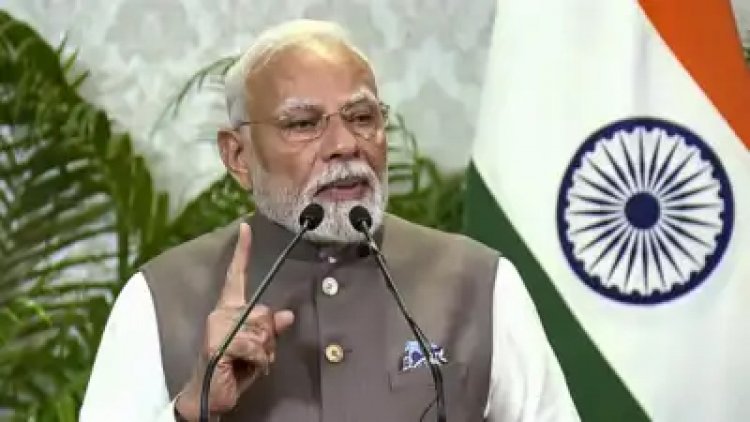PM’s Proposed Visit: Significance
Asia News Agency

Prime Minister Narendra Modi is scheduled to visit Manipur, a state torn apart by ethnic violence, in which over 250 people have lost their lives and thousands have been displaced. President’s Rule was imposed earlier this year, after removing N Biren Singh as chief minister.
The PM’s proposed trip, writes The Indian Express “provides an opening to build on the current lull in the violence and to initiate fresh negotiations between the Centre and Kuki militant groups (under the Suspension of Operations agreement) aimed at the free movement of people and goods. Of course, there are deep structural problems that will not be solved overnight: Roughly 3,000 looted arms still unaccounted for; nearly 57,000 people residing in over 280 relief camps; the continued absence of a popular government.”
The violence “exposed fault lines that had been widening for years. President’s Rule and the removal of an unpopular chief minister were necessary measures, but the Centre failed to build on them….” The Prime Minister’s visit will be a “significant step towards rebuilding trust and restoring a political process that alone can lead the state back to normalcy. At the very least, it will send a message to the people of the besieged state that the nation acknowledges their crisis, and that the fact that it continues is a scar on its conscience.”
The Naga ‘trade embargo’ hurdle
Ahead of PM Modi’s likely visit, Deeptiman Tiwary (writes on the Trending Topics, Opinions and Top Headlines at Indian Express) writes, “the government on Thursday claimed to have arrived at an understanding with Kuki groups on free movement, but the Ministry of Home Affairs is still grappling with another hurdle. The United Naga Council (UNC) that wields significant influence in the Naga areas of the state has announced a 'Trade Embargo’ beginning September 8 over the raising of the India-Myanmar border fence and the suspension of the Free Movement Regime (FMR) agreement with Myanmar.”
If not managed in time, “it could mar the achievements of free movement since NH-2 passes through Senapati district, which is dominated by Nagas. Several key highways important for the transport of goods to Imphal Valley pass through Naga areas such as Senapati, Ukhrul, and Tamenglong."
The Free Movement Regime: The FMR, which allowed the free movement of people across the India-Myanmar border up to 16 km, has been a prickly issue for both Kukis and Nagas, along with the border fencing. Due to shared ethnicity and familial relations across the border, both tribal groups have opposed the scrapping of the FMR and the construction of the border fence, with Kukis even likening it to the Berlin Wall.
However, Meiteis in the Valley have alleged that FMR and a non-fenced border led to illegal immigration and illicit drug trade. They have even blamed this for precipitating the ethnic strife that has torn the state in the past two years.
On February 8, 2024, Union Home Minister Amit Shah announced the suspension of FMR, ‘to ensure the internal security of the country and to maintain the demographic structure of India’s North Eastern States bordering Myanmar….’
















